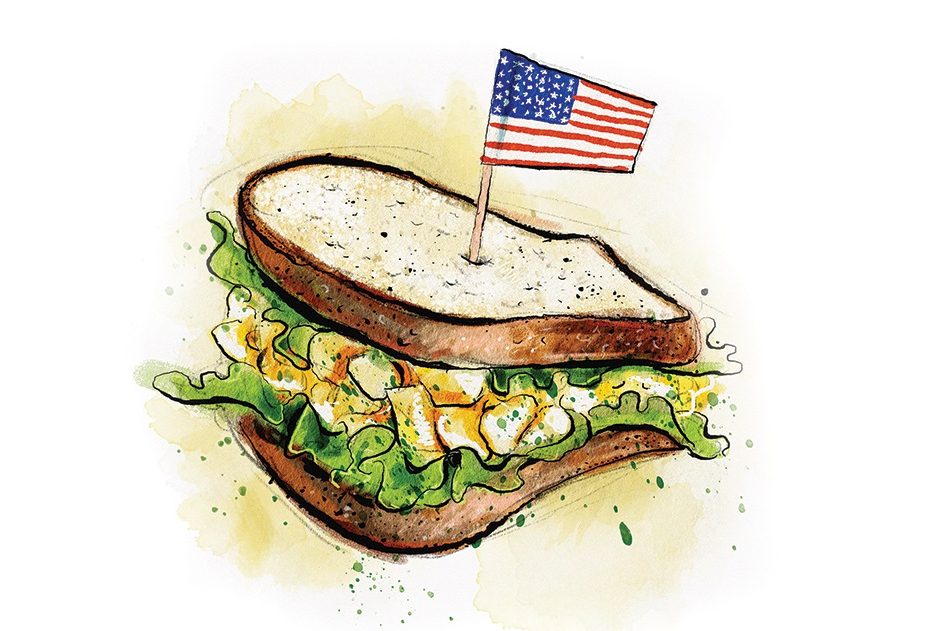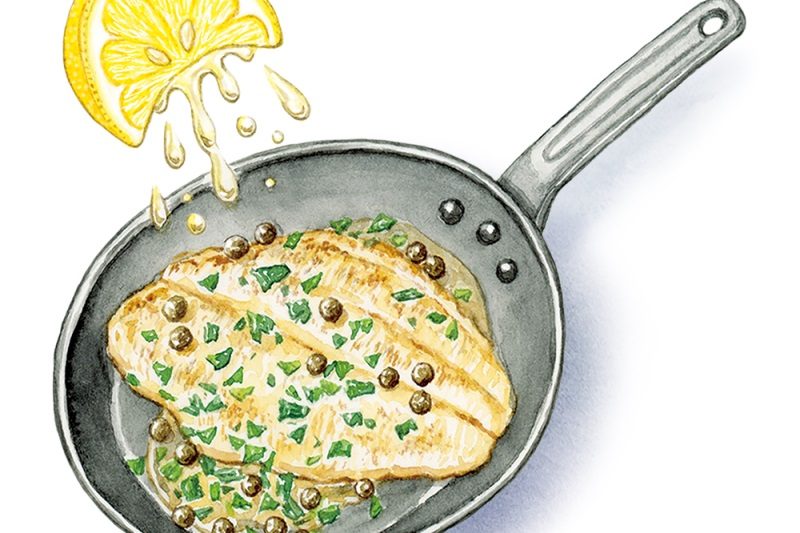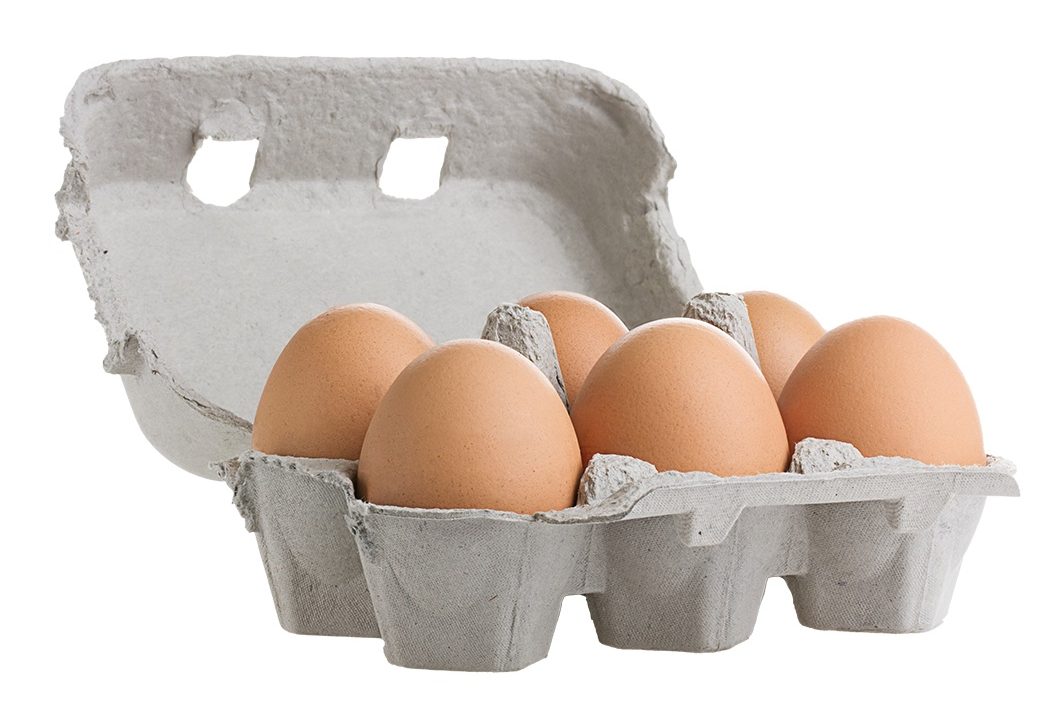Americans are weird about salad. I’m sorry but somebody had to say it. Really, Americans’ use of the word “salad” needs scare quotes around it. Where the rest of the world generally mean “green leaves and possibly a tomato if feeling adventurous,” an American “salad” can mean anything from pistachio cream with glacé cherries to tuna in sweet jelly. It is a hangover from the middle of the last century, when — in a perfect confluence — canned goods, especially otherwise unavailable fruit, and mass-produced gelatine simultaneously became easily available. The American housewife ran with it and inexplicably called it a salad.
Salad can be maximalist, with everything thrown at it. Bacon! Anchovies! Grapes! Marshmallows!
Listen, I know that language changes, taste changes, what and how we eat changes. But I still don’t feel comfortable calling a combination of whipped cream, apple slices and chopped-up Snickers bars a “Snickers salad.” And, frankly, that’s not even one of the worst offenders: there’s Coca-Cola salad, which combines strawberry jelly, tinned pineapple, cherry pie filling and Coca-Cola.
And it’s not just the terminology but the actual contents of these dishes. Is it better or worse if the salad is in fact savory? Perfection salad — a non-ironic name, seemingly — contains olives, celery, often cabbage and carrot, and pineapple, all suspended in a sweet lemon jelly. There are “barbecue” salads which combine lemon jelly (again) with the components needed for barbecue sauce, all set in moulds, and then “placed on crisp greens with mayonnaise.” I’ll pass on that one. These dishes, particularly in the Midwest where they are most beloved, pop up everywhere. They are not a novelty but an integral part of a celebration. At the Thanksgiving table, a creamy, jelly-laden salad will often be rubbing shoulders with a beautifully roasted bird, mashed potato and stuffing.
To those not indoctrinated, it seems bizarre. But this is also the country that gave us the cobb salad, the Waldorf, the Caesar. So America must occasionally be doing something right. And actually, if you look at some more absurd (or frankly, absurdist) salads, you can see glimmers of what makes America’s great salads so great.
Salad, for them, does not simply mean a combination of leaves, tomato and cucumber, but so much more than that, it need not be bound by rules at all. Salad can be maximalist, with everything thrown at it. Bacon! Anchovies! Grapes! Marshmallows! OK, perhaps not the last one. I have begun to realize that this fearlessness in the face of mayonnaise is American salads’ strength, as well as their madness.
And it’s why I’m prepared to favor the egg salad over Britain’s egg mayonnaise. As a country, Brits love egg mayonnaise. It consistently takes the top spot — or hovers nearby — in both polls and buying habits of Britain’s favorite sandwich filling. But it’s not terribly inspiring.
So what are the Americans doing differently when they make their egg salad? Because at first glance, it looks very similar to egg mayo, perhaps unsurprising given that egg and mayonnaise still make up the vast majority of the mixture. But there’s other stuff going on; it’s thoughtful. There is celery — which is finely sliced — for crunch, tiny little pieces of chopped cornichons, which bring a pickley brightness, as well as further texture. The sliced spring onions are softer, so harder to detect texturally, but their sweet, allium flavor is unmistakable. The mayonnaise itself is given a punchy makeover with lemon juice, mustard, and Worcestershire sauce. And the whole thing is darted through with the vibrant green of parsley. It is zippy and interesting, judiciously seasoned, balanced, and more comprehensive than Britain’s pale imitation.
Does this mean I’m a convert to the more… esoteric salads that America holds so dear? Not quite: I’m not going to be slinging mini-marshmallows into my prawn cocktail any time soon. But I’m prepared to concede that when it comes to egg salad, Americans got it right.
Serves 4
Takes 10 mins
Cooks 15 mins
- 6 eggs
- 2 spring onions
- 1 stem celery
- 3 cornichons
- 1 tbsp flat leaf parsley
- ⅛ lb mayonnaise
- 2 tsp Dijon mustard
- 1 tsp Worcestershire sauce
- 1 tsp lemon juice
- First, boil the eggs. Place the eggs in a large saucepan and cover them with cold water by about an inch. Bring to a rolling boil, remove the pan from the heat, cover, and leave to stand for ten minutes.
- Meanwhile, finely slice the celery, spring onions, cornichons and parsley.
- Drain the hot water off the eggs, and let them sit under cold running water until they are cold to the touch. Peel the eggs and chop into ¼ inch pieces.
- In a large bowl, whisk together the mayonnaise, mustard, Worcestershire sauce and lemon juice, and then stir through the chopped eggs, celery, spring onions and parsley. Taste and add salt and pepper to season, and then use immediately, or decant into an airtight container, refrigerate and use within three days.
This article was originally published in The Spectator’s UK magazine. Subscribe to the World edition here.

























